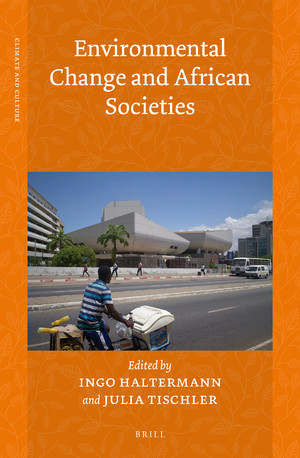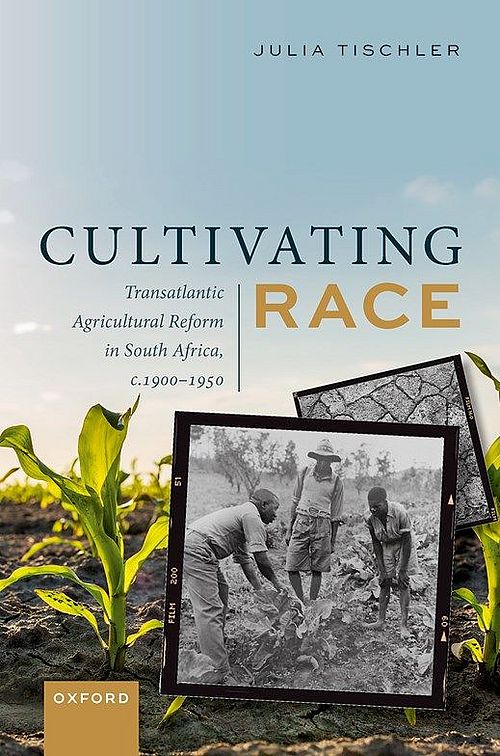Prof. Dr. Julia Tischler
Julia Tischler is a historian whose research has concentrated on environmental and agricultural themes in southern Africa. She completed her PhD at the University of Cologne (2011) with a study on the history of the Kariba Dam on the border between today’s Zambia and Zimbabwe. The dissertation was honoured with the Hedwig Hintze Award of the Association of German Historians (VHD). Her first book, Light and Power for a Multiracial Nation. The Kariba Dam Scheme in the Central African Federation (Palgrave 2013), examined the Kariba Dam as a case study of development and state-building during the late colonial period, relying on extensive archival and oral history work in Zambia, Malawi and the UK.
After a postdoc position at the International Research Center “Work and Human Lifecycle in Global History” (re:work) at Humboldt University in Berlin, Julia Tischler joined the University of Basel in 2015, where she completed her second book, Cultivating Race. Transatlantic Agricultural Reform in South Africa, c. 1900–1950 (Oxford University Press, 2025). The book charts agricultural progressivism in segregationist South Africa as a contested political movement that captured the imagination of Pan-Africanists as much as white supremacists. Taking a transnational and comparative approach, the book explores these rural transformations through the lens of agricultural education - including agricultural colleges, extension services, children's clubs, and domestic training. The monograph is based on archival research in numerous archives in South Africa, the USA, and the UK as well as oral history.
For her most recent project, Julia Tischler has shifted to questions of spirits, children, and things in colonial Ghana.
In addition, Julia Tischler has (co-)led several research projects. The collaborative research project “African Contributions to Global Health” (2019-2024) studied knowledge, practices or applications that were designed for improving healthcare in Africa but that have become – or have the potential to become – relevant to questions of health globally (https://data.snf.ch/grants/grant/183577). The project “Feeding the Earth: Synthetic Fertilizers and the Remaking of Agriculture in the Nineteenth and Twentieth Centuries” (2026-2030) enquires into the spread of synthetic fertilizers and the ways in which it transformed agriculture in the nineteenth and twentieth centuries (https://data.snf.ch/grants/grant/10006973).
Julia Tischler’s work has appeared in scientific journals, such as the Journal of African History, Africa. Journal of the International African Institute and the American Historical Review.
Key research and teaching areas:
- Southern Africa (South Africa, Zambia, Zimbabwe) in the twentieth century
- West Africa (Ghana) in the nineteenth and twentieth centuries
- Colonialism, settler colonialism, decolonization
- Development, agriculture, work and labour
- Missions, Christianity, and spirits
- Southern Africa (South Africa, Zambia, Zimbabwe) in the twentieth century
- Colonialism, settler colonialism, decolonization
- Development, agriculture, work and labour
- Social history, environmental history, global and entangled history

Environmental Change and African Societies
Serie "Climate and Culture", Band 5
Herausgeber: Ingo Haltermann and Julia Tischler
The volume Environmental Change and African Societiescontributes to current debates on global climate change from the perspectives of the social sciences and the humanities. It charts past and present environmental change in different African settings and also discusses policies and scenarios for the future. The first section, “Ideas”, enquires into local perceptions of the environment, followed by contributions on historical cases of environmental change and state regulation. The section “Present” addresses decision-making and agenda-setting processes related to current representations and/or predicted effects of climate change. The section “Prospects” is concerned with contemporary African megatrends. The authors move across different scales of investigation, from locally-grounded ethnographic analyses to discussions on continental trends and international policy.
Contributors are: Daniel Callo-Concha, Joy Clancy, Manfred Denich, Sara de Wit, Ton Dietz, Irit Eguavoen, Ben Fanstone, Ingo Haltermann, Laura Jeffrey, Emmanuel Kreike, Vimbai Kwashirai, James C. McCann, Bertrand F. Nero, Jonas Ø. Nielsen, Erick G. Tambo, Julia Tischler.


